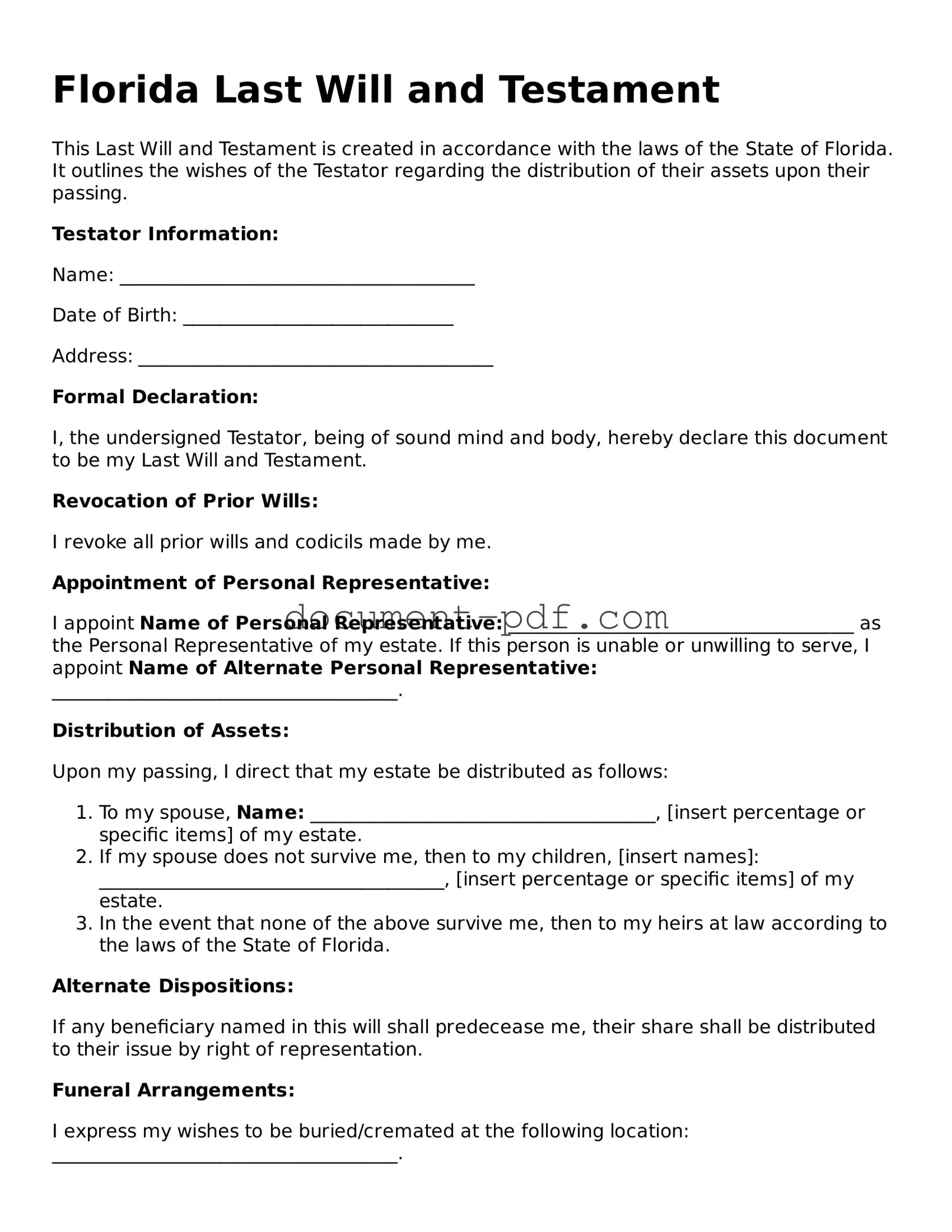Attorney-Verified Florida Last Will and Testament Template
A Florida Last Will and Testament form is a legal document that outlines how an individual wishes their assets to be distributed upon their passing. This form serves to ensure that your wishes are honored and provides clarity to your loved ones during a difficult time. If you’re ready to secure your legacy, fill out the form by clicking the button below.
Access Last Will and Testament Editor Here

Attorney-Verified Florida Last Will and Testament Template
Access Last Will and Testament Editor Here
Finish the form without slowing down
Edit your Last Will and Testament online and download the finished file.
Access Last Will and Testament Editor Here
or
Click for PDF Form
